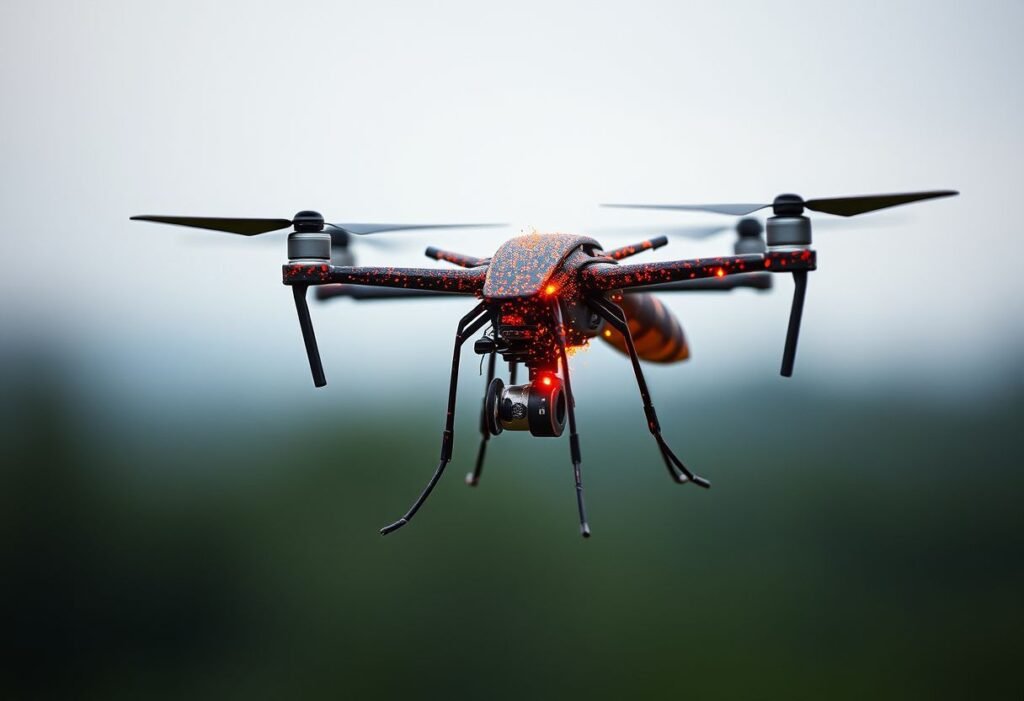Researchers are exploring innovative approaches to combat dengue fever outbreaks, and one of the most unexpected methods involves genetically modified mosquitoes delivered by drones. This strategy not only harnesses biotechnology but also represents a fascinating intersection of technology and public health initiatives.
Innovative Solutions for Dengue Fever Control
Dengue fever, transmitted primarily by Aedes mosquitoes, poses a significant public health threat in many tropical and subtropical regions. Traditional methods of controlling mosquito populations, such as insecticides, have met with limited success, leading to the search for alternative solutions. One promising approach is the release of genetically modified or infected mosquitoes aimed at reducing the transmission of the virus. By utilizing drones for this purpose, researchers can efficiently cover large areas quickly, allowing for a more effective response during outbreaks. This method not only minimizes human exposure to dangerous chemicals but also targets disease vectors directly in a highly controlled manner.
The Role of Laboratory-Engineered Microbes
Infected mosquitoes can carry laboratory-engineered bacteria that inhibit the growth of the dengue virus. These bacteria, often derived from naturally occurring species, are designed to be self-sustainable and reproduce within insect populations. Once released, these mosquitoes breed with local species, gradually spreading the bacteria throughout the population and thereby diminishing the prevalence of the dengue virus. This biocontrol strategy is not only innovative but also environmentally friendly, reducing reliance on chemical pesticides that can harm beneficial insect populations.
Implementation Challenges and Considerations
While the concept of drone-delivered mosquitoes is undeniably innovative, it also raises several implementation challenges. Regulatory approval is necessary before such initiatives can commence, as authorities must evaluate the ecological impacts and public health implications. Additionally, public acceptance is crucial; communities must be informed and reassured about the safety and effectiveness of these interventions. These concerns must be addressed directly through community engagement and education to ensure the success of any mosquito release program.
Targeting Urban Populations
Urban areas are particularly vulnerable to dengue outbreaks due to high population density and abundant breeding sites for mosquitoes. Propagating genetically modified mosquitoes via drones allows public health officials to target specific neighborhoods or hotspot areas with precision. By analyzing outbreak data, authorities can deploy interventions where they are most needed, thus maximizing impact while minimizing resource expenditure. This strategic targeting proves to be an efficient use of technology in epidemic preparedness and response.
The Future of Biocontrol Technologies
The application of biocontrol technologies extends beyond mosquitoes to other pest species that threaten public health and agriculture. As our understanding of genetic engineering improves, more advanced solutions can be developed to tackle various problems. Innovations such as gene drives and CRISPR technology hold promise for even broader applications in the future. This evolving landscape of biotechnology represents an exciting area of research that could redefine how we manage vector-borne diseases.
Conclusion: A Step Toward Sustainable Disease Management
The use of drones to deliver infected mosquitoes signifies a remarkable advancement in the fight against dengue fever and other mosquito-borne diseases. By embracing cutting-edge biotechnological solutions and integrating them with modern technology, we may unveil a new paradigm for sustainable disease management. As we continue to innovate in this arena, it is essential to ensure that ethical considerations are at the forefront of these developments, ultimately leading to safer and healthier communities.
Disclaimer: The content provided herein is for informational purposes only and should not be construed as medical advice. Always consult with a healthcare professional for medical concerns.





















